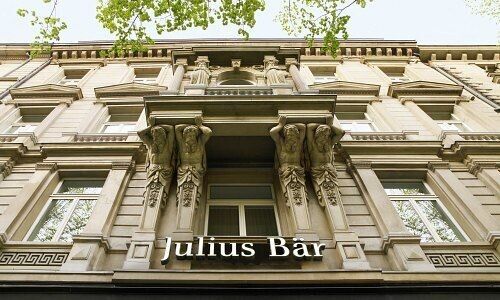The terms of the Swiss wealth manager's $80 million settlement for laundering bribe money for soccer officials include a painful admission and harsh words from U.S. prosecutors.
U.S. prosecutors finalized a deferred prosecution agreement with Julius Baer over laundering FIFA bribe money, the Justice Department said in a statement on Thursday. The bank, which had flagged the agreement last year, welcomed the resolution in a separate statement.
While the settlement itself isn't new, the specific terms are: Julius Baer admitted laundering $36 million in bribes. «Bank Julius Baer and its employees facilitated bribes and its compliance department turned a blind eye to glaring red flags of money laundering,» justice officials said.
Another Piece in the Puzzle
For the soccer graft, Julius Baer will pay more than $43 million in fines, and forfeit the $36 million it laundered, the DOJ said. Julius Baer has booked this against its 2020 financial results.
FIFA represents a further piece in the puzzle in the Swiss wealth manager's attempts to recover from a series of scandals, the most damaging of which has been its involvement with Venezuelan graft. The soccer probe, which dates back to at least 2015, hinged on Jorge Luis Arzuaga, a former Julius Baer private banker.
Accounts Fast-Tracked
He had been a linchpin in the scheme to rinse bribe money paid to soccer officials in exchange for broadcasting rights to soccer matches. Arzuaga, who worked for Julius Baer in Montevideo and Zurich, pleaded guilty in 2017 and was sentenced to three years probation last year.
The settlement paints a damning picture of Julius Baer's compliance practices until 2015: the bank knew Arzuaga's clients were at high risk of corruption, but an unnamed executive nevertheless «directed the opening of these accounts be fast-tracked in the hope that these clients would provide lucrative business,» the DOJ said.
Top Executives Implicated
The DOJ said Julius Baer had, at least at first, misled officials and hindered its investigation, «and it did not come forward with all evidence pertaining to the involvement of senior management.» It isn't clear who the executive or the senior managers involved are.
The case echoes language used by Switzerland's regulator when it censured three former Julius Baer executives, including ex-CEO Boris Collardi, over Venezuela's PDVSA. Collardi is now a partner with Pictet, where he co-heads the Genevan bank's wealth management arm.
Pain Only Starting
Although the financial pain is behind it, it is likely that many at Julius Baer will look back and say paying the fine was the easy part. Typically, in a deferred prosecution, the bank will have to appoint a monitor, usually a law firm, and it will be given complete access to the bank, its processes, clients and management. It will essentially be shadowing all of the bank's activities.
The cost for this is usually fully borne by the bank and it is likely that they will take the next three years to request severe – and painful – changes to Julius Baer's entire approach to its clients, business, management, governance and processes. At the end of it, it is likely that the federal prosecutor will have to approve the final report by the monitor and decide then whether to proceed with prosecution, demand further changes, or release it.
Andrew Isbester contributed reporting




































